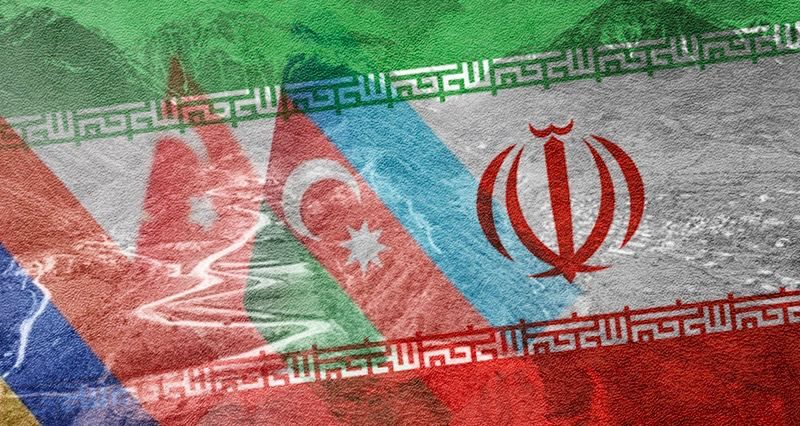Tehran's concerns over Zangazur Corridor: Closer look at economic and geopolitical implications

For the past few days the prospect of launching the Zangezur Corridor has reemerged as a key issue in regional discussions, stirring debates among major South Caucasus players. Certainly, Iranian officials and experts have been particularly vocal, raising concerns about the proposed transport route.
As we have previously reported, on September 2, Iran's Ministry of Foreign Affairs expressed worry about "potential geopolitical changes in the South Caucasus." Mojtaba Demirchilu, head of the Eurasian Department at the Iranian Ministry of Foreign Affairs, met with Russian Ambassador to Tehran Alexey Dedov to discuss the "inadmissibility of altering internationally recognized borders in the region." Tehran has voiced its dissatisfaction with Moscow's support for the corridor project, which aims to connect Azerbaijan's western regions with Nakhchivan through Armenian territory.
As much as Iran's concerns can founded as a political or Tehran's says 'perceived as a challenge to her traditional Caucasus policy', this issue also needs to be rated from economic perspectives as well. Indeed as it's stated, for Iran, the Zangezur Corridor, which connects mainland Azerbaijan with Nakhchivan via Armenian territory, is seen as a potential threat to its geopolitical position. Note that the corridor is set to become a crucial link in the global transport network, bridging the East and West, and opening new trade opportunities between China, Türkiye, Europe, and the Caucasus.
So what makes Tehran so concerned about?
One primary concern for Iran is the potential loss of transit revenues. The volume of transit goods passing through Iran has increased by 30% compared to the previous year. From March 2023 to January 2024, 14.2 million tons of cargo transited Iran, generating approximately $1 billion in revenue during these ten months.
Given Iran's ongoing economic distress exacerbated by sanctions since change of regime in 1979, this income is vital. TThe increasing number and scope of sanctions have severely impacted Iran's economic prospects, making transit revenue a critical lifeline. Even by checking the reports in US Department's official website, we can easily say how much nation is deprived in terms profitable gains. For Iran, which is experiencing such economic and political distress, earning income as a transit country is the last resort.
Additionally, Türkiye's foreign trade strategy has increasingly prioritized Central Asia. In general, the realization of the principles of the "United Turkic World" has seriously increased the development trends towards Asia in Türkiye's foreign economic policy. By the end of 2023, trade turnover between Türkiye and Kazakhstan reached a record $6.4 billion, with Uzbekistan also showing significant growth with whopping 3 billion dollars and with a prospect of reaching 5 billion dollars in the upcoming years. Türkiye is one of the five main trading partners of the Central Asian countries, and Türkiye has become the number one exporter for Turkmenistan in recent years, surpassing China. Therefore, if there is no Zangezur Corridor, Türkiye's increased trade turnover in Central Asia will mean an opportunity for Iran to obtain excellent transit revenues, and an additional obstacle and more costs for Türkiye itself. We all know that, as Moscow preoccupied with the conflict in Ukraine and redirecting its focus away from the South Caucasus, Tehran is eager to assert its influence in the region.
However, Iran might benefit from re-evaluating its stance. Strengthening cooperation with Azerbaijan and Türkiye could open new opportunities for Iran. Amid growing Western isolation and increasingly stringent sanctions, Iran could leverage the Zangezur Corridor to enhance its position in international trade.
Future initiatives: A win - win situation for all the countries
In his recent interview with Azerbaijani channel Real TV, spokesperson of Azerbaijan’s Ministry of Foreign Affairs Aykhan Hajizada said Azerbaijan is working on building communication lines through Iran. Given the context, as it was before the Zangezur Corridor is still keeping its relevancy, and it is more than just a transport route; it represents a significant element of the new geopolitical reality in the South Caucasus. Its launch poses no threat to Iran and, as mentioned earlier, does not aim to alter the border between Iran and Armenia. Therefore, instead of viewing the Zangezur Corridor with hostility, Tehran should consider it as an opportunity to enhance its economic and political position in the region. Also adding the fact that as mentioned abovem, corridor is set to become a crucial link in the global transport network, bridging the East and West, and opening new trade opportunities between China, Türkiye, Europe, and the Caucasus, so it is indeed a win-win situation for all the parties.
---
Follow us on Twitter @AzerNewsAz
Here we are to serve you with news right now. It does not cost much, but worth your attention.
Choose to support open, independent, quality journalism and subscribe on a monthly basis.
By subscribing to our online newspaper, you can have full digital access to all news, analysis, and much more.
You can also follow AzerNEWS on Twitter @AzerNewsAz or Facebook @AzerNewsNewspaper
Thank you!

